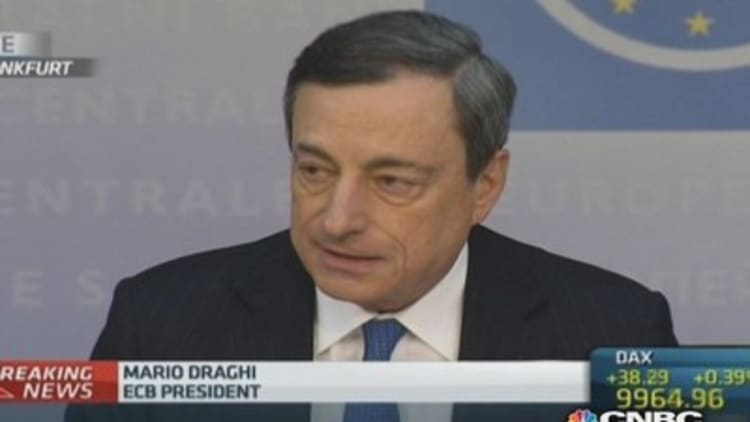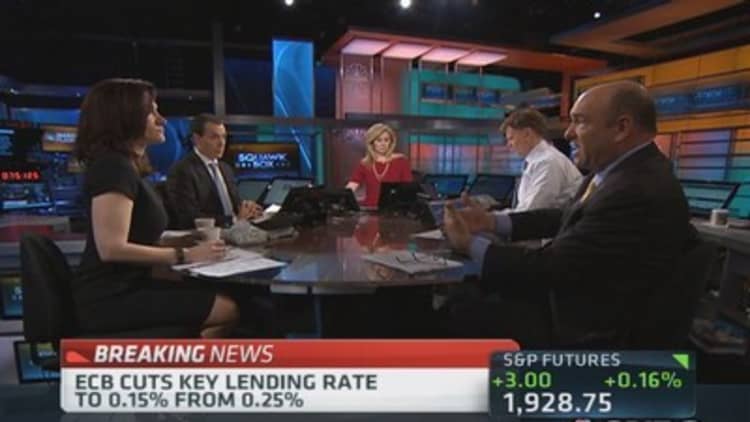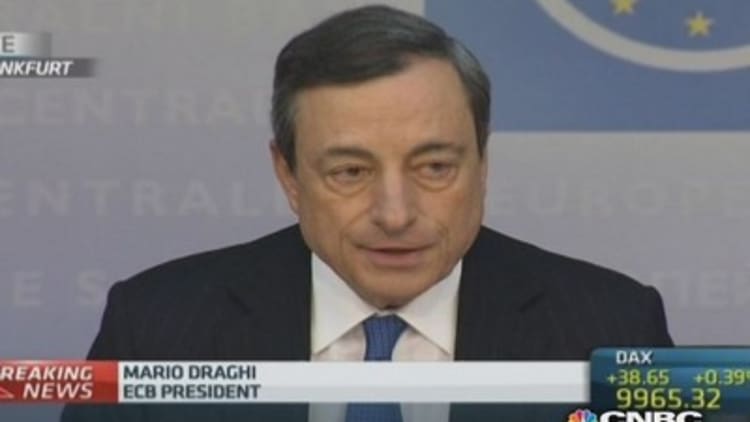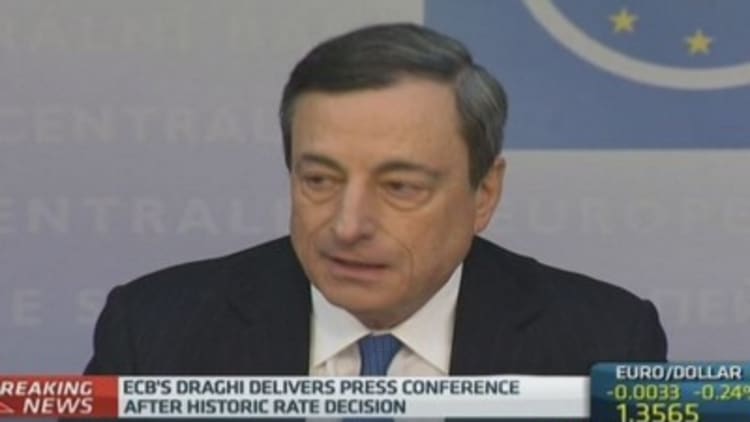
The European Central Bank (ECB) took the unprecedented step on Thursday of imposing a negative interest rate on banks for their deposits—in effect charging lenders to park money with it.
The move was part of a series of measures to combat the euro zone's growth-sapping disinflation and give a push to its stuttering economic recovery.
At its June monetary policy meeting, the ECB cut the rate on its deposit facility for banks from 0 percent to minus 0.10 percent—the first time a major global central bank has moved rates into negative territory.
It also cut its main interest rate to from 0.25 percent to 0.15 percent, and cut the rate on its marginal lending facility by 35 basis points to 0.4 percent from 0.75 percent.
ECB President Mario Draghi also unveiled other measures in his regular press conference in order to get funds flowing to businesses and households.

"Today, we decided on a combination of measures to provide additional monetary policy accommodation and to support lending to the real economy," he said in his introductory statement.
The initiatives included longer-term refinancing operations (LTROs), in which the ECB lends to banks at low interest rates, in order to encourage them to lend to households and non-financial corporations.

In addition, he said the ECB had undertaken "preparatory work" in order to conduct a form of U.S.Federal Reserve-style bond-buying by purchasing asset-backed securities (ABS) from banks.
Furthermore, Draghi said the ECB would cease sterilizing the liquidity injected from its Securities Markets Program. The program involved the purchase of bonds from troubled "peripheral" euro zone countries.
"We decided on a combination of measures ... to support lending to the real economy," Draghi said.
The euro zone's inflation rate is currently well below the ECB's target of just under 2 percent, having fallen unexpectedly to 0.5 percent last month, its lowest level since autumn 2009.
The euro declined against the U.S. dollar to 1.351 from 1.3600 after Draghi began speaking, before rising again.
Meanwhile, the German Dax index rose above 10,000 points for the first time ever and the pan-European FTSEurofirst 300 rose to 1,387. Both subsequently fell back, but closed in positive territory.
"We think this is a significant package," Draghi said. "Are we finished? No."
He said the decision to launch a raft of stimulus measures had been unanimous across the ECB's decision-making council.
"I am really very grateful to all my colleagues on the Governing Council," said Draghi.
Kit Juckes, macro strategist at Societe Generale, said Draghi's policy announcement would boost markets across the board.
"The gist is that he is doing everything short of full QE (quantitative easing) to support the economy, and that will be reflected in stronger asset prices generally," Juckes said in a research note.
"The carrot of full QE is still dangling in front of us."

Draghi denied his program would discourage euro zone countries from continuing with painful but necessary structural reforms.
"Our package is not a disincentive for structural reforms. Clearly they are two different things," he said. "Are we completely comfortable with the level of structural reforms by governments? No."
for the latest on the markets.

